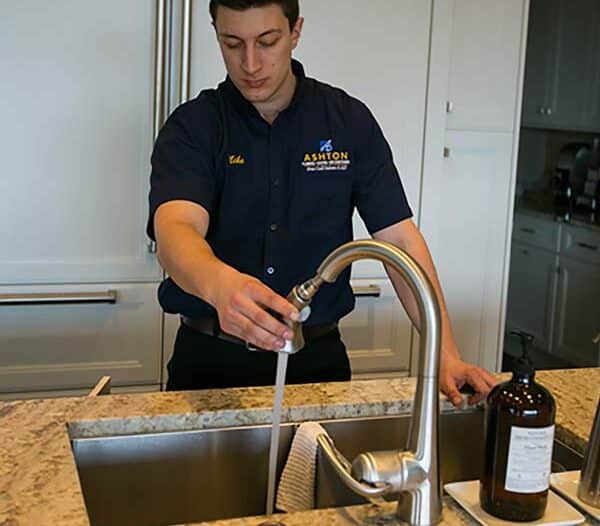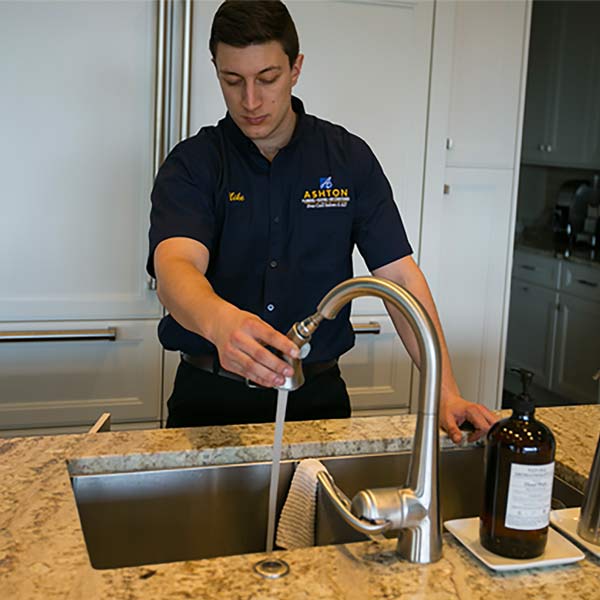
Let’s face it, we’ve all experienced a clogged or blocked drain at some point. One of the most common plumbing problems faced by home occupiers, commercial or industrial enterprises, and plumbing companies alike is the clogged drain.

Whatever the cause of the blockage, it requires immediate attention, as it often leaves the sink or toilet unable to drain and can result in an unwanted overflow, bad smells, corrosion, sewage back-up and even flooding. There are measures you can put in place to reduce the chances of blockages, so here’s a look at the leading cause of clogged drains and what you can do to avoid them.
- Grease and Fat
Grease and fat are two persistent causes of blocked drains. After being washed down the sink, often coming from the food residues and soap washed down the drain, they can solidify, collect on the pipe walls and cause subtle build-ups that aren’t always immediately apparent until the blockage strikes.
The best solution is to avoid washing fatty foods and oil down the sink whenever you can – instead, pour the excess grease or fat into a container and dispose of it in other ways, such as absorbing it on to a paper towel and placing it in you compost bin. Another solution is to install a grease trap in the pipes to catch the grease or fat before it makes its way into the main sewer pipes.
- Hair
Build-ups of hair are a common cause of a clogged drain. You might shave in the bathroom and wash the trimmings down the sink or you might simply find that strands of your hair wash away when you have a shower. When the hair builds up in a drain, it can act as a web, causing other materials to get caught up in it and so you need to take action to prevent the build-up.
One option is to avoid rinsing the hair down the drain after shaving. You should also install drain covers or strainers on all of your sinks, including the bathroom ones, which serve to catch the hair from being flushed away. It’s also good practice to pour boiling water down your sinks and bathtub each week to loosen up any early clogs in your drains. Prevention is key and it’s far better to work on the problems now, rather than wait until you have aa full-blown situation on your hands.
- Foreign Objects
It’s no surprise that small objects that aren’t designed to go down your drains often do, causing untold problems. Foreign objects such as nappies, soaps, sanitary items and children’s toys might not block the drain completely; however, they can still cause a build-up when combined with other substances resulting in a significant blockage.
To avoid this problem, only let water, toilet paper and human waste go into your drains, while all other objects should be recycled or disposed of as garbage. When it comes to your toilet, be careful about what you flush down the bowl – anything like garbage, paper towels and sanitary products will cause clogs. Also, try to buy ply toilet paper with fewer layers to ease the volume of material being flushed each time.
- Food Waste
Food waste clogs can affect any kitchen sink and can block your drain even if you use a garbage disposal system. You should avoid flushing food waste down your drains and instead use a composting bin to deal with the unwanted food parts – tea leaves and coffee grounds are bad because they don’t easily break down.
If you do have a garbage disposal in your sink, avoid throwing anything and everything into it, as it will cause a jam. Always flush cold water through the system at the same time that you dispose of food items. If not, the ground-up food particles will become stuck in the pipes and might combine with any grease or fat to become a nasty clog – with the power off, you’ll then need to inspect and clean the garburator, or you may need to call in a professional to repair or replace the system.
- Tree Roots and Leaves
If you have trees or large bushes surrounding your property, there’s a high chance that they’ll contribute to the blocking of your drains. The problem may arise from the debris coming from the trees and shrubs i.e. the leaves falling during the autumn, or it may come from the root system underground. Tree roots are notorious for being attracted to water and if your piping has a small crack or leak, the roots will seek out the escaping water through the ground leading to major blockages within the pipes.
If you do find yourself experiencing drain damage as a result of the foliage and roots on your property, then you’ll need to call in the professionals who will assess the damage and plan your repairs. This can involve pressure jet cleaning, rooter service, trenchless repair and sometimes excavation depending on the size and impact of the clogging.
When it comes to taking care with what you dispose of in the sink or bathtub, and following these simple steps to prevent clogs and blockages, there are products available at home improvement stores that can help. But they can be damaging to the old piping or harmful to work with, especially as some products are caustic in nature.
A better preventative measure for avoiding clogged drains is to sign up for yearly plumbing inspections and drain cleaning by a professional plumbing company, such as Ashton Services Group, to keep your drains well-maintained and clog-free.

